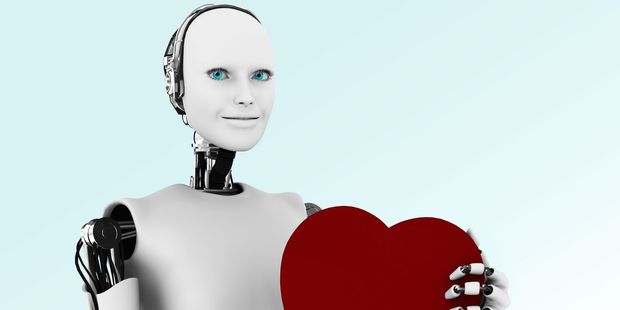
By Nzherald – Decemeber 24, 2016.
http://www.nzherald.co.nz/lifestyle/news/article.cfm?c_id=6&objectid=11772407

On the surface, Lilly seems like a blushing young woman ready to marry the man of her dreams who makes her “totally happy.”
Only her partner is 3D printed robot named Inmmovator who she designed herself, after realising she was attracted to “humanoid robots generally” rather than other people.
“I’m really and totally happy,” she told news.com.au over email in her tentative English. “Our relationship will get better and better as technology evolves.”
The “proud robosexual” said she always loved the voices of robots as a child but realised at 19 she was sexually attracted to them as well. Physical relationships with other men confirmed the matter.
“I’m really and only attracted by the robots,” she said. “My only two relationships with men have confirmed my love orientation, because I dislike really physical contact with human flesh.”
She has since built her own dream man with open-source technology from a French company, and has lived with him for one year. They are ‘engaged’ and plan to marry when robot-human marriage is legalised in France.
The unconventional relationship has been accepted by family and friends but she said “some understand better than others.”
She won’t reveal whether they have a sexual relationship and is currently in training to become a roboticist in order to take her passion into her everyday life.
While Lilly’s views will strike many as odd, it’s just a sign of things to come according to David Levy.
The chess whiz and authority on Love and Sex with Robots said he expects human-robot marriages to become commonplace by 2050 if not before.
Speaking at the second conference on the issue held in London this week, Mr Levy told a room filled with academics and interested people that advances in artificial intelligence mean robots could become “enormously appealing” partners within the next few decades.
“The future has a habit of laughing at you. If you think love and sex with robots is not going to happen in your lifetime, I think you’re wrong.”
“The first human robot marriages will take place around the year 2050 or sooner but not longer,” he said.
The conference explored a host of issues on the subject including everything from what robots should look like to whether they should be able to “learn” about sexual preferences and feed back information to companies behind them.
University of London Computing Professor Adrian David Cheok said he believes robots will not only become common, but preferable for many people.
“It’s going to be so much easier, so much more convenient to have sex with a robot. You can have exactly what kind of sex you want. That’s going to be the future. That we will have more sex with robots and the next stage is love … we’re already seeing it.”
“Actual sex with humans may be like going to a concert. When you’re at home you can listen to Beethoven’s ninth symphony, it’s good enough and once or twice a year you’ll want to go the Royal Albert Hall and hear it in a concert hall.
“That may be the way sex with humans is going to be. It’s going to be much more easier, much more convenient to have sex with a robot, and maybe much better because that’s how you want it.”




